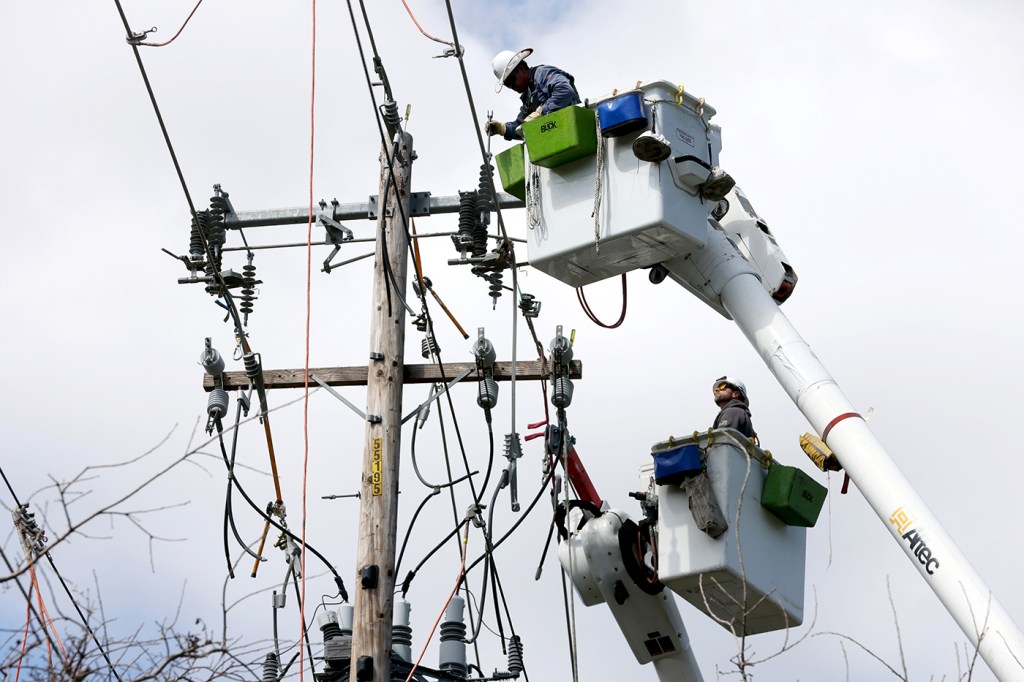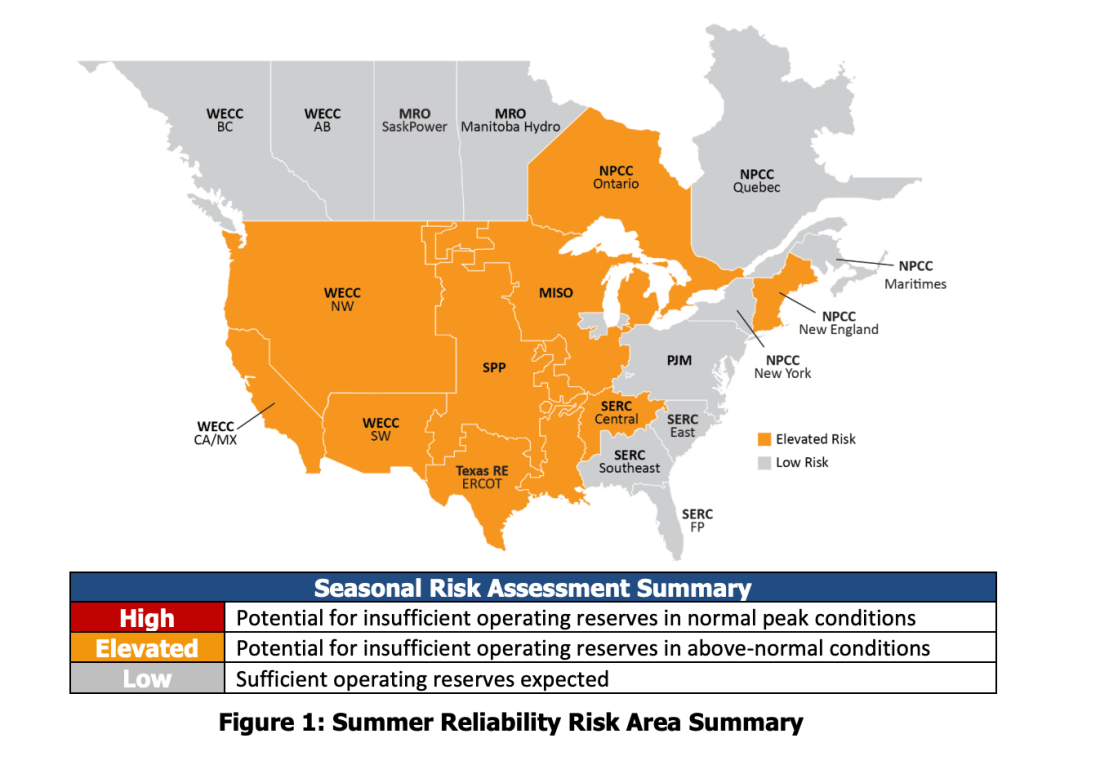Will there be more blackouts and power outages this summer?

As extreme weather events, longer summers and the transition to renewables become more common, Northeastern experts say that users can expect an increase in power outages this summer.
“I think things are less predictable than ever,” says Jennie Stephens, who researches the social-political aspect of renewable energy transformation at Northeastern. “We know there’s going to be disruption.”
The North American Electric Reliability Corp. (NERC) 2023 Summer Reliability Assessment warns that two-thirds of North America is at risk of energy shortfalls this summer during periods of extreme demand.
Almost the entire continental U.S. is at elevated risk, except the Eastern seaboard other than New England.
“Increased, rapid deployment of wind, solar and batteries have made a positive impact,” says Mark Olson, NERC’s manager of Reliability Assessments. “However, generator retirements continue to increase the risks associated with extreme summer temperatures, which factors into potential supply shortages in the western two-thirds of North America if summer temperatures spike.”

“The state of the U.S. power grid is precarious,” says Stephen Flynn, a leading expert on critical infrastructure and the founding director of the Global Resilience Institute at Northeastern.
However, daily the system is incredibly reliable and deals with an enormous demand, Flynn says. The U.S. is the world’s greatest power consumer and can knit together a network, a grid, that allows users to have power and continue to add to new power demands.
“But we’ve had to pull a lot of rabbits out of a hat to make that happen,” Flynn says.
Right now, Flynn says there is a migration to more sustainable energy sources to the grid. The older fossil fuel plants also now have stiffer emission requirements. But, in response, many of those companies are handling those restrictions by not investing in cleaner technology to operate them and, as a result, are using them less.
The transition from the aging old infrastructure to the new sustainable ones such as solar and wind is in a nomad’s land, Flynn says.
“We can start to see this perfect storm,” he says.
As the summer becomes hotter and longer, the demand on the infrastructure is mounting with less extra capacity to support it.
The U.S. power grid is in a delicate period where sustainable energy is coming on slower than it needs to handle a surge, Flynn says. The old infrastructure is becoming less reliable with fewer businesses willing to invest in it, and the new renewable energies take time to permit and build.
There is regional variability in the risks of blackouts, says Auroop R. Ganguly, who researches infrastructure resilience at Northeastern. The factors at play include weather trends and fluctuations, changes in extreme weather, and how well-maintained the grid is, Ganguly says.
Renewables have intermittency, meaning the wind isn’t constantly blowing, and the sun isn’t always shining, Stephens says. However, battery technology allows flexibility in being able to store it and use it later. Renewables also add diversity to the grid.
As a federal report last year noted, a high probability of blackouts and brownouts can result from fossil fuel-powered energy as well, Ganguly says.
Things are less predictable than ever. We know there’s going to be disruption.
Jennie Stephens, dean’s professor of sustainability science and policy at Northeastern
As the renewable energy industry matures, it will likely increase reliability, especially during peak demand.
“The technologies are happening; it’s a scale challenge that we have,” says Flynn. “But what is often not thought out is the complexity and the importance of the grid and how we coordinate all those different regulatory bodies.”
Beth Treffeisen is a Northeastern Global News reporter. Email her at b.treffeisen@northeastern.edu. Follow her on Twitter @beth_treffeisen.






